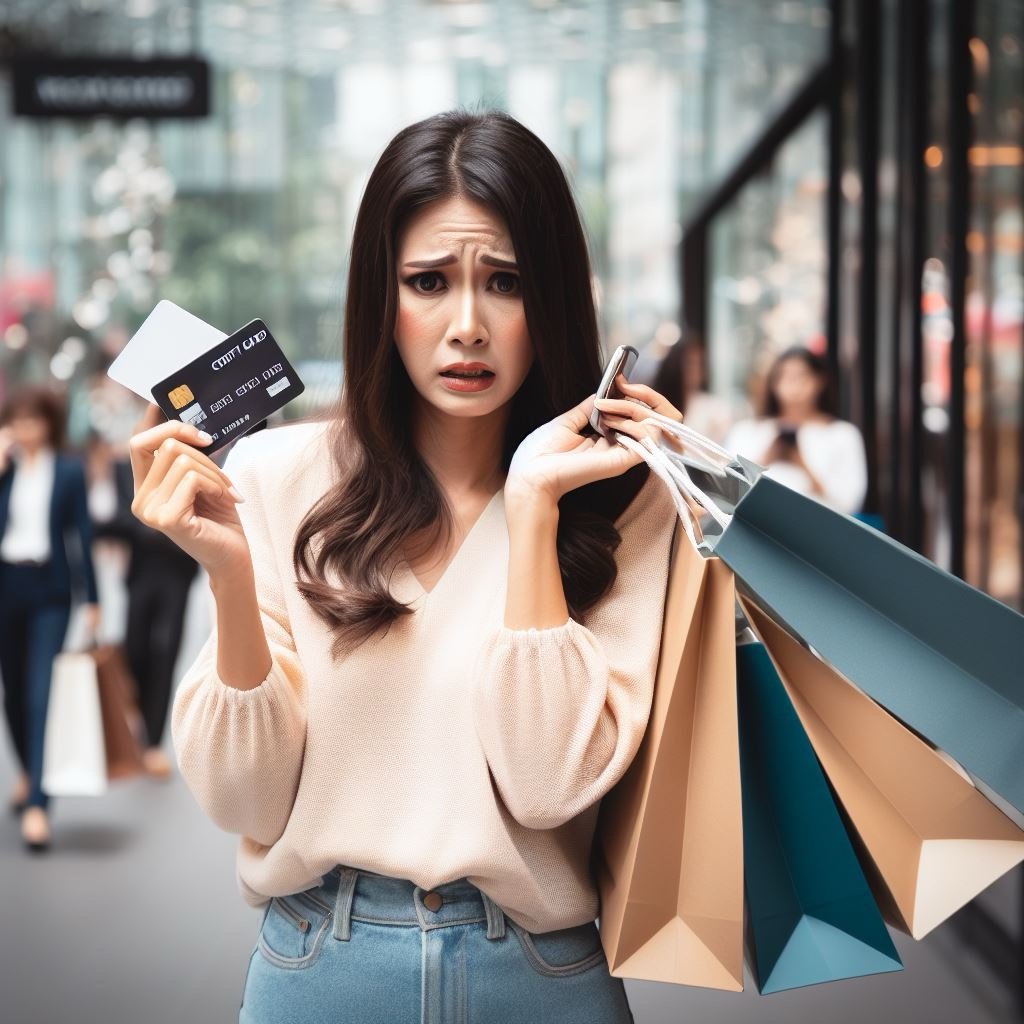We’ve all been there — situations when we just cannot resist the urge to buy things we don’t really need. Usually, with no moderation or financial discipline in place, this behavior takes a toll on our financial lives. With festivities just around the corner and shopping apps offering jaw-dropping discounts, impulsive shopping is likely to set in. So, ladies and gentlemen, in this post today, I’ll discuss tips, tricks, and strategies to help you avoid impulsive buying and save your hard-earned money.
Understanding impulsive buying
We all have to buy things regularly which are essential for us to live healthy and comfortably, for example – milk, fruits, vegetables, clothes, medicines, etc. But when we end up buying things which we really don’t need right now, that’s called impulsive buying.
For example, someone goes to a shopping mall to buy a pair of shoes, but ends up buying a lot of other items which they did not plan to buy, such as clothes, luxurious watches, gadgets, or other accessories. This spontaneous and unplanned shopping of things is called impulsive buying.

Do you wonder why did this happen? Well, there are a host of factors or trigger points that may lead to impulsive shopping. Let’s discuss them briefly.
What factors or trigger points cause impulsive buying?
1) Credit cards
One of the major contributing factors is credit cards. Credit cards can make us more prone to impulsive shopping because they make us feel less regretted when we spend money. That’s because when we use credit cards instead of cash, we don’t really see the money leaving our bank accounts.

On top of that, many credit card companies offer extended credit limits with reward points linked to credit spendings – which all can lead us to overspend and remain in a false impression that we still have plenty of money left and nothing to lose with rewards in place.
2) Marketing stimulation
After credit cards, the next big trigger point is marketing stimulation, usually in the form of jaw dropping discounts, attractive packaging of products, bundled offerings, using words like ‘limited time deal’, ‘big sale’, ‘lifetime low price’, and so on. All this induces a ‘Fear of Missing Out’ (FOMO) in the customers and they flock over to retail outlets and apps to ensure that they buy everything that’s advertised.

This therefore creates an unnecessary desire and an artificial requirement for items which they had not initially planned to buy.
3. Your mood
The next factor contributing to impulsive shopping is your mood. You are more likely to engage in impulsive shopping when you are feeling anxious, insecure, depressed, or experiencing a generally negative emotional state.
For example, consider the impact of the COVID-19 pandemic. The constant barrage of negative news and the incessant sound of ambulance sirens created an overwhelming sense of insecurity among many. As a result, a significant number of individuals rushed to purchase and hoard even non-essential items on account of uncertainty surrounding the future.
4. Societal / Peer pressure
These factors are more likely to impact college students and young co-workers. In an attempt to impress their peers and family members, people often tend to spontaneously purchase high value luxury items such as iPhones, upscale clothing, jewelry sets, and so on.
After all, it’s a common human psychology to feel elevated and more accepted in the society when people show off their possession of high value luxury items.
How to avoid impulsive buying?
Now that we have understood the factors behind impulsive shopping, let’s now discuss tips and strategies to avoid it from taking a toll on your financial well being:
Tip No. 1: Limit your credit card usage
Your credit card can be your friend or foe, depending on how you use it. If you’re prudent in your purchases and pay all your bills in full and on time, you’ll benefit from using credit cards. However, if you use them recklessly and don’t pay your bills in full before the due date, you let your financial health deteriorate with poor savings and high interest rates.
To limit the usage of your credit card, you can put a self-restricting limit on the amount of credit you can use in a billing cycle. For instance, if your current credit limit is Rs. 1,50,000, you could limit it to 50%, i.e., Rs. 75,000 to remain in control of your spending. In case of any financial emergency, you could again upgrade that limit.
It’s important to note that some credit card providers may allow you to set a usage limit on your card. You can check with your provider to see if this is an option for you.
Tip No. 2: Use cash wherever possible
Another effective way to curb impulsive shopping is by using cash instead of credit or debit cards. When you pay with cash, you can physically see and feel those currency notes leaving your wallet, which triggers a negative emotional response.

This awareness helps you resist the temptation to purchase unnecessary items. In contrast, paying with credit cards delays the payment doesn’t elicit the same negative emotional response.
Tip No. 3: Uninstall all shopping apps during festive season
Online shopping apps, such as Amazon and Flipkart, launch a plethora of shopping deals under their iconic branding called ‘Amazon Great Indian Festival’ and ‘Big Billion Days’. While there might certainly be some great deals during such sales, the truth is that we usually scroll through the entire catalogue of products and make unnecessary purchases.
To avoid making unnecessary purchases, make a list of items you need and stick to it. You can also set a budget for yourself and avoid browsing through products that are outside your budget. However, during festive seasons, it’s easy to get carried away with all those bright advertisements and news about sales. I therefore recommend that you uninstall these shopping apps altogether during such festive seasons.
Tip No. 4: Avoid shopping when you are feeling anxious, depressed or bored
As we discussed in our post above, you are much likely to indulge in impulsive shopping when you are feeling anxious or depressed. It is therefore important to recognize your mood and take control of what follows — cravings for shopping. Seek help from a psychologist if you find yourself completely unable to control your impulsive shopping behavior.
What’s your story?
Have you also been a victim of impulsive shopping? How did it affect your financial life and what steps did you take to control it? Please share your thoughts and experiences in the comments below.

Leave a Reply